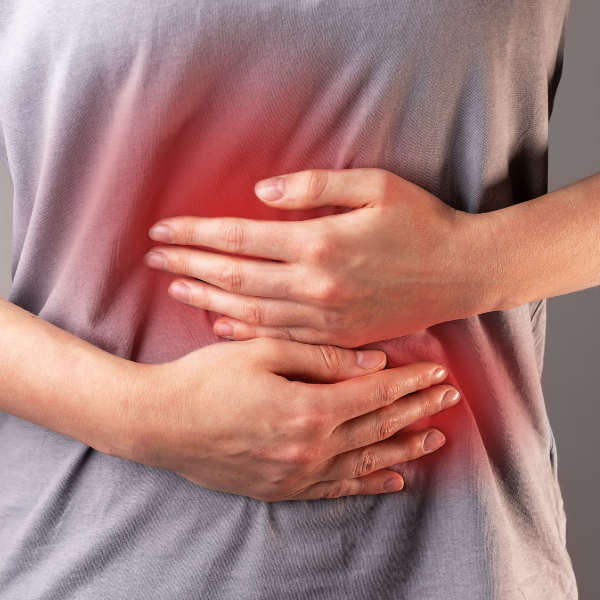What it is, how to treat it and how to prevent it. We asked Professor Giovanni Leonetti, UniCamillus lecturer
Do you get “butterflies in your stomach”? No, we’re not asking you when you last fell in love, but to remind us how closely emotions and the stomach are linked. Fear, stress, anxiety, happiness, strong emotions, they can all affect your heart… and your stomach! And one of the possible consequences is stress-induced gastritis. What is gastritis? It is a condition whereby the lining of the stomach becomes inflamed and irritated. Excessive consumption of alcohol, coffee, painkillers, and stomach infections can all contribute to this annoying condition. Stress can also cause gastritis because anxiety creates a hormonal state in the body that increases the secretion of gastric juices, causing stomach pain, bloating, acidity and burning. In this case, it is necessary to act on two fronts: psychologically, by reducing stress, and physically, by adopting a healthy lifestyle and possibly taking specific medication. We discussed this with Professor Giovanni Leonetti, lecturer in Gastroenterology at UniCamillus.
How is stress linked to stomach problems? Are hormonal and/or chemical processes involved?
“Stress-induced gastritis is an inflammation of the stomach lining caused by stress and anxiety. It can be triggered by various factors such as work difficulties, changes in lifestyle, periods of intense study and/or emotional, family and health problems. When stress and anxiety become very high, the production of acidic digestive juices increases and the mucus and prostaglandins that protect the stomach lining decrease. It is not usually a serious condition, but it is very uncomfortable and can have a profound effect on the patient’s quality of life.”
What is the difference between stomach pain, heartburn and bloating?
“Stomach pain is one of the most common and frequent symptoms. It can manifest as sharp pain, cramping, a feeling of heaviness and poor digestion, and can also be associated with other symptoms. It can be caused by a variety of things in the stomach, intestines, or other abdominal organs. Heartburn (technically known as ‘pyrosis’) is a painful sensation in the upper part of the abdomen caused by increased acid production. It is often associated with other conditions such as burping and regurgitation (the upflow of liquid/food from the stomach into the oesophagus, sometimes as far as the mouth), which can cause burning in the throat and mouth. It is a symptom that can have many different causes. Bloating is a condition characterised by two specific symptoms: abdominal swelling and pain. Normally, a feeling of fullness and bloating in the upper abdomen is a temporary symptom which disappears spontaneously after digestion. However, if the feeling of fullness is accompanied by a persistent stabbing pain, it could be related to a functional and/or organic condition of the gastrointestinal tract, in which case it is advisable to consult a specialist for correct diagnosis and treatment.”
Is stress-induced gastritis related to stress-induced colitis?
“The gastrointestinal system is a fundamental part of our body responsible for digestion and absorption of nutrients. It is made up of several organs, such as the stomach, the small intestine, and colon, which work in synergy to ensure the proper functioning of the digestive process. However, when the body is exposed to prolonged, chronic stress, changes can occur in the autonomic nervous system, which includes the sympathetic and parasympathetic nervous systems. In particular, chronic stress often leads to hypersensitivity of the sympathetic nervous system, which can cause the onset of pathological symptoms at the gastric and intestinal levels.”
What are the consequences of ignoring stress-induced gastritis?
“If left untreated, gastritis can lead to gastro-oesophageal reflux, gastric ulcers, gastric bleeding, malabsorption of iron and vitamin B12, and general discomfort.”
Are there people who are more at risk?
“Absolutely. There are people who are particularly at risk of developing stress-induced gastritis: people who have a hectic job or whose results always involve a sometimes nerve-wracking waiting period; people who have emotional difficulties with their partner; people who suffer from a chronic illness or are about to undergo a delicate operation; people who have a close relative with a serious health condition; people who are waiting for the results of an important clinical or academic/work examination.”
How can it be prevented and/or treated?
“My advice is: eat small and frequent meals; chew properly—this facilitates digestion and reduces the time food spends in the stomach; manage your stress, favouring relaxing physical activities such as yoga. In certain cases, and on medical advice, it may be useful to take antacids, which neutralise stomach acid and provide rapid pain relief, and/or gastric antisecretory drugs such as proton pump inhibitors (PPIs), which reduce acid secretion by blocking its production by gastric cells.”
In terms of diet, are there any “culprit” foods or drinks?
“Of course. You should avoid elaborate sweets and fats, limit the consumption of meat, fatty or preserved (salted, in oil, smoked, etc.) fish, fatty cheese, excessive spices and condiments, tea, coffee, and carbonated drinks. It is best to avoid cold foods such as iced drinks, ice cream, slushies—especially on an empty stomach. The same goes for fried food, sour fruit like lemons, tangerines, oranges, citron, pineapple, currants, pomegranates, and dried fruits as they are too rich in fats and proteins. Other foods to watch out for are white wine, vinegar, tomatoes, peppers, and tomato juice.”
Is there any seemingly harmless behaviour that people with stress-induced gastritis should avoid?
“A healthy lifestyle and diet reduce irritation of the stomach lining and is appropriate preventive behaviour. Remember not to skip breakfast and not to go for hours without eating. Eat slowly and don’t lie down immediately after eating because this encourages gastro-oesophageal reflux. Finally, remember not to smoke or drink alcohol.”

